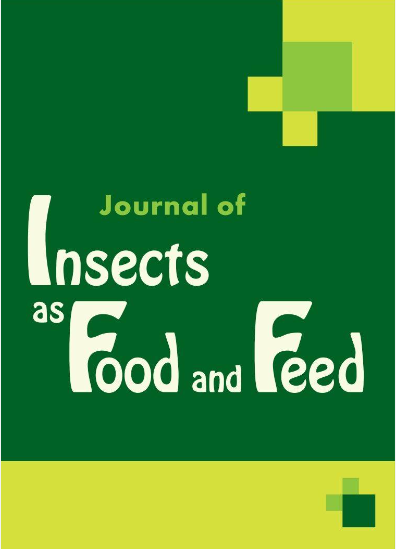A cross-sectional study of the willingness to consume insects in a culture without entomophagy
IF 4.7
3区 农林科学
Q1 ENTOMOLOGY
引用次数: 0
Abstract
Entomophagy is the technical term for eating insects and traditionally a part of daily diet in many tropical and subtropical countries. The rapidly increasing world population, industry and human-induced environmental pollution, and global warming reduce agricultural lands and clean water resources and make it difficult to produce sufficient food and therefore protein. Although edible insects are a promising opportunity as they require fewer natural resources than other animal foods, they are not considered as the food of the future in many Western countries for reasons such as disgust. A growing body of research in a diverse array of cultural contexts has examined people’s attitudes towards eating insects, but this work has not yet included Türkiye, a country with a well-established traditional cuisine and where entomophagy is highly novel. This study examined attitudes toward eating insects, and predictors thereof, in a large Turkish community sample (n = 914). For willingness to eat whole insects, age was a significant positive predictor, and food neophobia, disgust sensitivity, and being female were negative predictors for both whole insects and insect flour foods. For both types of insect foods, disgust was a negative predictor and belief in the benefits of eating insects was a positive predictor. This pattern of results is concordant with work from many other cultural contexts in the Americas, Asia, and Western Europe, providing further evidence for the importance of reducing food neophobia and disgust sensitivity and providing information about the benefits of insect foods in order to improve attitudes toward entomophagy.对无昆虫食性文化中昆虫食用意愿的横断面研究
昆虫嗜食是吃昆虫的专业术语,传统上是许多热带和亚热带国家日常饮食的一部分。世界人口的迅速增长、工业和人类造成的环境污染以及全球变暖,减少了农业用地和清洁水资源,使人们难以生产足够的食物和蛋白质。虽然可食用昆虫比其他动物食品需要更少的自然资源,是一个大有可为的机会,但在许多西方国家,由于厌恶等原因,人们并没有把它们当作未来的食品。越来越多的研究在不同的文化背景下考察了人们对食用昆虫的态度,但这些研究还没有包括土耳其,因为土耳其是一个有着悠久传统饮食文化的国家,而昆虫食物在该国还是一种非常新颖的食物。本研究调查了大量土耳其社区样本(n = 914)中人们对食用昆虫的态度及其预测因素。对于是否愿意食用整只昆虫,年龄是一个显著的正向预测因素,而对于整只昆虫和昆虫粉食品,食物新恐惧症、厌恶敏感性和女性则是负向预测因素。对于这两种昆虫食品,厌恶感是一个负向预测因子,而相信吃昆虫有好处则是一个正向预测因子。这种结果模式与美洲、亚洲和西欧许多其他文化背景下的研究结果一致,进一步证明了减少对食物的恐新症和厌恶敏感性以及提供有关昆虫食品益处的信息对改善昆虫食性态度的重要性。
本文章由计算机程序翻译,如有差异,请以英文原文为准。
求助全文
约1分钟内获得全文
求助全文
来源期刊

Journal of Insects as Food and Feed
Agricultural and Biological Sciences-Insect Science
CiteScore
7.00
自引率
17.60%
发文量
133
期刊介绍:
The Journal of Insects as Food and Feed covers edible insects from harvesting in the wild through to industrial scale production. It publishes contributions to understanding the ecology and biology of edible insects and the factors that determine their abundance, the importance of food insects in people’s livelihoods, the value of ethno-entomological knowledge, and the role of technology transfer to assist people to utilise traditional knowledge to improve the value of insect foods in their lives. The journal aims to cover the whole chain of insect collecting or rearing to marketing edible insect products, including the development of sustainable technology, such as automation processes at affordable costs, detection, identification and mitigating of microbial contaminants, development of protocols for quality control, processing methodologies and how they affect digestibility and nutritional composition of insects, and the potential of insects to transform low value organic wastes into high protein products. At the end of the edible insect food or feed chain, marketing issues, consumer acceptance, regulation and legislation pose new research challenges. Food safety and legislation are intimately related. Consumer attitude is strongly dependent on the perceived safety. Microbial safety, toxicity due to chemical contaminants, and allergies are important issues in safety of insects as food and feed. Innovative contributions that address the multitude of aspects relevant for the utilisation of insects in increasing food and feed quality, safety and security are welcomed.
 求助内容:
求助内容: 应助结果提醒方式:
应助结果提醒方式:


